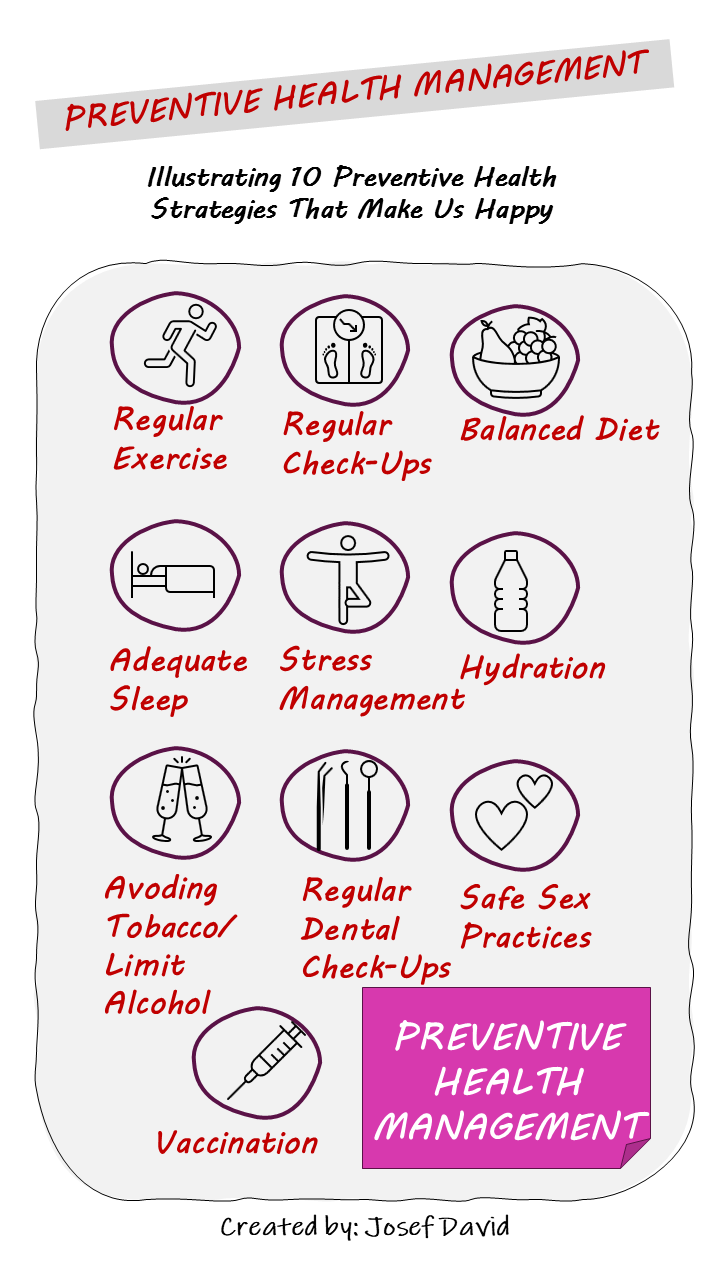Problem:
In today’s fast-paced world, the importance of preventive health strategies cannot be overstated. The escalating rates of chronic diseases such as diabetes, heart disease, and cancer are a testament to the fact that our health is under siege. These conditions not only compromise our quality of life but also place a significant financial burden on individuals and healthcare systems alike. Despite the availability of numerous preventive health strategies, many people are either unaware of them or find it challenging to incorporate them into their daily routines. This lack of knowledge and implementation is a significant problem that needs to be addressed.
Impact:
The consequences of neglecting preventive health measures can be severe. Chronic diseases can lead to debilitating health complications, reduced productivity, and even premature death. Moreover, treating these conditions can be costly and time-consuming, often requiring long-term medication or invasive procedures. The emotional toll on patients and their families is also substantial. However, many of these health issues can be prevented or managed effectively with the right strategies in place.
Solution:
To combat this issue, we present ten preventive health strategies that have been proven to help maintain good health and prevent disease. These strategies are not only backed by scientific research but are also practical and easy to incorporate into your daily routine.
1. Regular Exercise: Regular physical activity helps control weight, reduces the risk of heart disease, strengthens bones and muscles, and improves mental health and mood. For example, a study published in The Lancet showed that people who exercise regularly have a lower risk of developing many chronic diseases.
2. Balanced Diet: Eating a balanced diet rich in fruits, vegetables, lean proteins, whole grains, and healthy fats can help prevent chronic diseases like heart disease and diabetes. A study in the Journal of Nutrition found that people who follow a Mediterranean diet have a lower risk of heart disease.
3. Regular Check-ups: Regular medical check-ups can help detect diseases early when they are easier to treat. For instance, the NHS recommends women over 50 to have mammograms every three years to detect breast cancer early.
4. Adequate Sleep: Getting enough sleep is essential for good health. Lack of sleep can lead to various health problems, including obesity, diabetes, and heart disease. The National Sleep Foundation recommends adults get 7-9 hours of sleep per night.
5. Stress Management: Chronic stress can lead to serious health problems like heart disease and depression. Techniques like meditation, yoga, and deep breathing can help manage stress levels.
6. Hydration: Staying hydrated is crucial for maintaining good health. Dehydration can lead to kidney stones, constipation, and even cognitive impairment.
7. Avoiding Tobacco and Limiting Alcohol: Smoking and excessive alcohol consumption are major risk factors for several chronic diseases. The NHS advises people to quit smoking and limit alcohol consumption for better health.
8. Regular Dental Check-ups: Regular dental check-ups can help detect oral health problems early and prevent conditions like gum disease and oral cancer.
9. Safe Sex Practices: Practising safe sex can prevent sexually transmitted infections (STIs) and unwanted pregnancies.
10. Vaccinations: Vaccines are one of the most effective ways to prevent diseases. They protect against many serious illnesses like measles, pneumonia, and flu.
By implementing these strategies into your daily routine, you can significantly reduce your risk of developing chronic diseases and improve your overall health. Remember, prevention is always better than cure.
